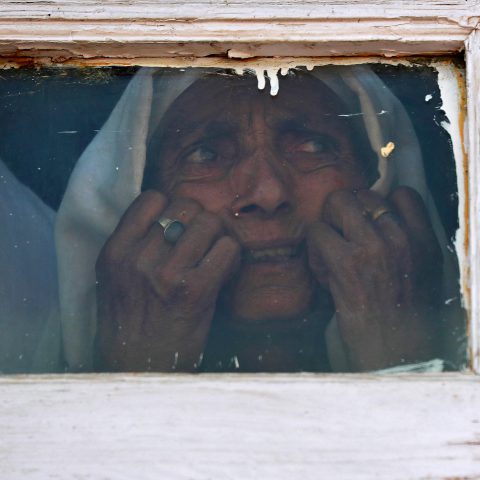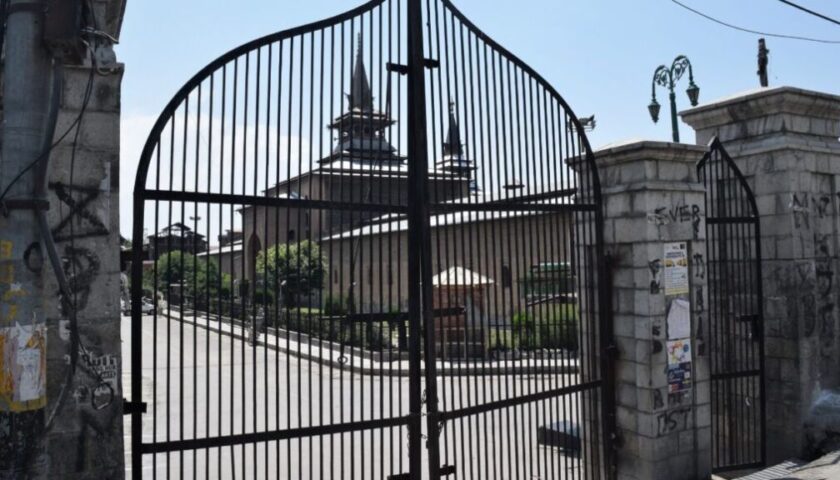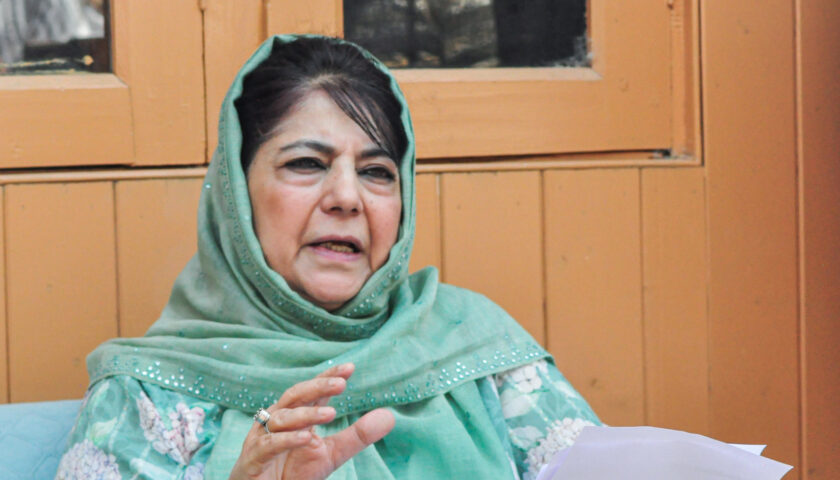Delhi has introduced new domicile laws in Kashmir that critics say are aimed at bolstering its Hindu nationalist project to change the region’s demographics akin to Israeli settlements in Palestine.
By: Haris Zargar
Months after India revoked the longstanding autonomy of the disputed Kashmir region, the Hindu nationalist government of Prime Minister Narendra Modi has introduced new domicile laws that allows Indian citizens to buy property and become permanent residents in the contested Himalayan region. The decision has been surmised as Delhi’s first move to tamper with the Muslim-majority demographics of Kashmir in the style of Israeli settlements in occupied Palestine.
On 31 March, India’s Ministry of Home Affairs issued a notification changing the decades-old domicile law of the erstwhile Jammu and Kashmir (J&K) state. The new law, which redefines the Hereditary State Subject laws in J&K, entitles any Indian national who has stayed in the region for 15 years to domicile status – 10 years for federal government officials and their children, and seven for high school students. This would allow them to apply for government jobs in the state.
Not only has the decree evoked a sharp reaction among locals, which have long feared Delhi’s forceful integration of the restive region with the Indian union, but observers are also accusing Modi’s right-wing dispensation of using the Covid-19 pandemic to advance its Hindu settler colonial enterprise in the region, saying it is a page right out of the Israeli playbook to transform the region’s demographics.
The newly introduced legislation is a sharp digression from the earlier domicile laws in the state, which granted exclusive rights to the local population to buy property, hold land ownership and work. They also barred non-residents from applying for jobs or owning immovable property in the erstwhile state.
Weeks after the new law was announced, the authorities in Kashmir introduced a set of rules called Jammu and Kashmir Grant of Domicile Certificate (Procedure) Rules 2020. These outline who qualifies to be a competent authority to issue a domicile certificate; the time frame within which the domicile can be issued; and the punishment that can be expected by any concerned official who fails to process the domicile on time.
The ruling Bharatiya Janata Party (BJP) amended the J&K Property Rights to Slum Dwellers Act by deleting references to “permanent residents”, which makes it easier for non-local slum dwellers to gain property rights. The Modi regime also created a delimitation commission to redraw the boundaries and sizes of electoral constituencies for J&K, along with India’s northeastern states of Assam, Manipur, Arunachal Pradesh and Nagaland. This has, unsurprisingly, angered residents, who assert that the move is another attempt to disenfranchise the Muslim population and skew the political landscape of Kashmir to pave the way for the Hindu settler project.
The new rules now grant domicile rights to Indian soldiers, bureaucrats and officials – along with their families – that are stationed in J&K or who were previously deployed in the restive state. An estimated 600 000 to 700 000 Indian military and paramilitary personnel are deployed in Kashmir at present. The move allows another estimated 600 000 migrant labourers from India to qualify for domicile rights.
“Obviously it is an attempt to change the demographics. Not only change, but flood it. It will lead to demographic flooding,” Kashmir-based political analyst Siddiq Wahid told the Al Jazeera news network. Echoing similar views, Sheikh Showkat Hussain, a professor of legal studies based in the capital of Srinagar, noted that the move was in the offing and the whole purpose of revoking Article 370 was to settle outsiders in Kashmir and change the demography of the state. “Now this provides the modalities and entitles so many categories of Indians whose settlement will be legalised over here,” he said.
Previously, no land or property could be purchased by Indians or Pakistanis on the Indian or Pakistani side of Kashmir. While the rules still stand on the Pakistani side in Azad Jammu and Kashmir, the Modi government’s decision to de-operationalise Article 370 means that Indians can now buy land in Kashmir.
Although Article 370 had been hollowed out over the years of the provisions that granted the region autonomy in its internal affairs, Article 35A of the law was among a few protections that still held strong that forbade Indians from becoming domiciles in J&K and barred them from settling in the region.
On 5 August last year, the Indian government stripped J&K of its special status under Article 370 and split the state into two union territories. Indian authorities imposed a months-long communications blockade and incarcerated millions of the region’s inhabitants.
Redefined domicile law criticised
Pakistan’s government lashed out at Delhi for introducing the new legislation, which it said was aimed at changing the demographic structure of the disputed region. “It has been underscored that these actions are illegal and in violation of the UN Security Council (UNSC) Resolutions and international law, in particular the 4th Geneva Convention,” the Pakistan Foreign Office said, adding that India was opportunistically exploiting the ongoing Covid-19 pandemic to further intensify its military crackdown in the contested territory.
The Organisation of Islamic Cooperation – a consortium of 57 Islamic countries – said it had been following with deep concern the “unilateral” scrapping of the valley’s longstanding special status in August 2019, and subsequent measures to alter the demographics of and undermine the rights of the people of J&K. The organisation reaffirmed the importance of complying with international law and UNSC resolutions, considering the domicile notification as “baseless, running counter to international law and UN Security Council resolution 122”, which concerns the dispute between the governments of India and Pakistan over the territories of J&K.
Syed Abdullah Gilani, the spokesperson of pro-independence group Hurriyat (G), told the Middle East Eye online news organisation that while the world is fighting the coronavirus, India is busy usurping the rights of Kashmiris. “India has again blatantly violated the UN resolutions on Kashmir and we will expose India’s fascist approach of conspiring against Kashmiris.”
Most pro-India political parties in the state condemned Delhi’s move to redefine the domicile laws and raised the alarm over what looks to be a veiled effort to change the demographic make-up of the territory. “When the entire country is battling Covid-19, and people and their representatives of J&K are bereft with worries and concerns about their lives and of their families, the government of India brings in the law,” said the National Conference political party.
The Peoples Democratic Party, whose president and former state chief minister Mehbooba Mufti continues to live in detention, sought an immediate rollback of the rules. It described the order as “frighteningly ambivalent, irresolute and akin to rubbing salt into the people’s wounds”. Communist Party of India (Marxist) senior leader M Yousuf Tarigami said the new domicile notification is an “extension of the unconstitutional and undemocratic assault” carried out by the Modi government last year.
Tinkering with Kashmir’s demographics
Exponents of India’s Hindu nationalist government have asserted that the move to dissolve Article 370 would improve integration of the entire state of J&K into the rest of the Indian Union. “Article 370 is the root cause of terrorism in Jammu and Kashmir,” India’s Minister of Home Affairs Amit Shah told the country’s Parliament after it passed the bill to abrogate Article 370, adding: “J&K will truly become an integral part of India.”
Most in Kashmir say that the subtext of Shah’s remark is the Hindutva assertion that Kashmir’s problems stem from the Muslim-majority demographic of the state and that once demographic changes are enforced, the anti-India, pro-independence sentiment in the region will be “cured”. Critics say that Delhi opening Kashmir for settlement by outsiders shows the real motive behind the withdrawal of Article 370, asserting that the move resonates with how Israeli settlers moved on to Palestinian land by buying it from them.
US-based advocacy group Stand With Kashmir – a Kashmiri diaspora-led international solidarity movement that seeks to end the Indian occupation and support the right to self-determination – underpinned that India’s intention is to force Kashmiris to give up their historical demand for the right to self-determination guaranteed by several UN resolutions.
“Given the openly fascist nature of India’s current Hindutva regime, which enjoys a strong electoral majority, violence is not just built into the settler project but also seen by many in India as the desired method to achieve this. RSS (Rashtriya Swayamsevak Sangh) led India wants to remove native Kashmiris from Kashmir,” said Stand With Kashmir. “Under settler colonialism, the Indian state will start its long plan to permanently settle Indian nationalists in Kashmir to alter Kashmir’s demography,” it added.
“There is no doubt that the recent decision is a continuation of the 5 August move and the goal is to ‘change facts on the ground’, that is, effect demographic change. In fact, this single order creating a new domicile category has already brought down the share of state subjects in the total population of the state considerably,” wrote senior Kashmiri journalist Muzamil Jaleel. Echoing the same sentiments as Stand With Kashmir, Jaleel highlighted that although a plebiscite to settle the Kashmir dispute was a “remote and almost impossible possibility” in the current international climate, the introduction of the domicile category is a well thought out strategy to prepare for such an eventuality as Kashmir remains a pending dispute in the UN.
Drawing similarities with Israel’s use of residency laws to disenfranchise and dislocate Palestinians, United Kingdom-based Kashmiri lawyer Mirza Saaib Bég noted that under the new domicile processes if Kashmiri fails to meet the new criteria – whether by malice, manipulation or by the design of the new rules – revoking residency rights will inevitably lead to their involuntary transfer from Kashmir in search of shelter and employment. “All these initiatives have sparked fears of demographic change, militarised settlements, dispossession, and alienation of land in Kashmir,” he said. Writing for digital media organization, journalist Ajaz Ashraf and researcher Vignesh Karthik KR conclude that J&K’s demography is bound to be altered beyond belief. And at a speed so astonishing that the procedure for issuing a domicile certificate will seem, unfortunately, a quasi-colonial project.




